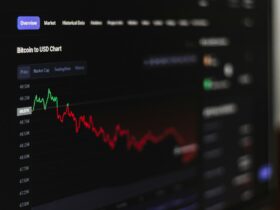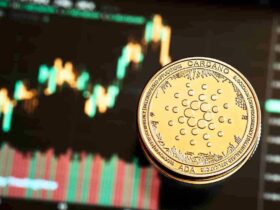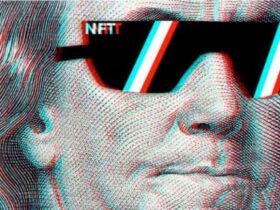WASHINGTON — Gov. Ron DeSantis of Florida, who is preparing to take a widely anticipated leap into a 2024 presidential campaign, appears to have discovered something that populists throughout history have found to be true: Bashing the Federal Reserve is good politics.
Mr. DeSantis has begun to criticize Jerome H. Powell, the Fed chair, in speeches and news conferences. He has alleged without evidence that the Biden administration is about to introduce a central bank digital currency — which neither the White House nor the politically independent Fed has decided to do — in a bid to surveil Americans and control their spending on gas. He has quoted the Fed’s Twitter posts disparagingly.
His critiques echo a familiar playbook from the Trump administration. Former President Donald J. Trump often blasted the central bank during the 2016 campaign and while he was in office, as policymakers lifted interest rates and slowed economic growth. Mr. Trump at one point called Mr. Powell — his own pick for Fed chair — an “enemy,” comparing him to President Xi Jinping of China.
Because the central bank is responsible for controlling inflation, it is often blamed both for periods of rapid price increases and for the economic damage it inflicts when it raises rates to bring that inflation under control. That can make it an easy political target.
And populist skepticism of government control of money dates back centuries in America. The nation’s first and second attempts at creating a central bank failed partly because of such concerns. The Fed, set up in 1913, was designed as a decentralized institution with quasi-private branches dotted around the country in part to avoid concentrating too much power in one place. It has been the subject of conspiracy theories and political attacks ever since.
“In many ways, it is not surprising at all,” said Sarah Binder, a political scientist at George Washington University who has studied politics and the Fed. Mr. DeSantis is placing himself to Mr. Trump’s right, she said, “and it sounds like many populist right-side critiques of the Fed, of monetary control, that we’ve heard throughout history.”
While Mr. DeSantis’s Fed-bashing is not new, some of his remarks have strayed into misinformation, said Peter Conti-Brown, a lawyer and Fed historian at the University of Pennsylvania.
“The Fed can and should take this seriously,” Mr. Conti-Brown said.
While the Fed is independent of and largely insulated from the White House, it does ultimately answer to Congress. And a lack of popular support could curb the Fed’s room to maneuver: If the government decided that pursuing a digital currency was a good idea, for instance, the backlash could make it more difficult to do so.
Mr. DeSantis’s tone could also offer hints about the future. Starting from the early 1990s, presidential administrations have largely respected the Fed’s independence, avoiding commenting on monetary policy. Mr. Trump upended that tradition. President Biden has returned to a hands-off approach, but the recent criticism offers an early hint that the détente may not last if a Republican wins in 2024.
Gov. Ron DeSantis and His Administration
The Republican governor of Florida has turned the swing state into a right-wing laboratory by leaning into cultural battles.
Mr. DeSantis has faulted Mr. Powell’s policies for failing to control inflation, recently calling the Fed chair a “complete disaster.”
In Mr. Powell, the potential presidential candidate has a rare opportunity to criticize Mr. Trump and Mr. Biden simultaneously: The Fed leader was first nominated to the central bank by President Barack Obama, then made chair by Mr. Trump and renominated as chair by Mr. Biden.
Mr. DeSantis has focused much of his attention on a central bank digital currency, or C.B.D.C., which would operate like electronic cash but with backing from the federal government. The Fed has been researching both the potential uses and technical feasibility of a digital currency, but has not yet decided to issue one. Mr. Powell has made clear that the Fed “would not proceed with this without support from Congress.”
The digital money that Americans use today — whether they are swiping a credit card or completing a Venmo transaction — is issued by banks. Physical cash, by contrast, comes directly from the Fed. A central bank digital currency would effectively be the digital version of a dollar bill.
Many people who think the Fed should seriously consider issuing a central bank digital currency suggest that it could help improve access to banking services. Some have argued that it is important to develop the technology: America’s global competitors, including China, are researching and issuing digital money, so there is a risk of falling behind.
Yet critics have worried about the privacy concerns of a centralized digital dollar. And the dollar is the most important reserve currency in the world, so any technological issues with a digital offering could be catastrophic. That is why the Fed has pledged to proceed carefully — and why the idea of issuing a digital currency in America is only in its formative research stages.
Though there is no plan to issue a digital currency, Mr. DeSantis on March 20 proposed state legislation to “protect Floridians from the Biden administration’s weaponization of the financial sector through a central bank digital currency.”
He then warned during an April 1 speech, with no factual basis, that Democrats wanted to use a digital currency to “impose an E.S.G. agenda,” referring to environmental and social goals like curbing consumption of fossil fuels or tightening gun control.
Mr. DeSantis “is heading off any attempt to control people’s behavior through centralized digital currency,” his press secretary, Bryan Griffin, said in response to a request for comment.
Mr. DeSantis’s claims echo those on right-wing social media, and they are in line with the interests of important Republican donors: Many banks and cryptocurrency firms are adamantly opposed to the idea of a central bank digital currency, worried that it would take away business.
Florida, in particular, has been friendly to the digital currency industry, with lawmakers passing favorable legislation.
And people with stakes in cryptocurrency are among Mr. DeSantis’s top political donors. Kenneth Griffin, the billionaire hedge fund executive and crypto skeptic turned advocate, gave $5 million to a political action committee that supported Mr. DeSantis’s 2022 re-election. Paul Tudor Jones, a billionaire investor who had significant shares in the now-bankrupt crypto trading platform FTX, contributed $850,000 to the group, according to campaign finance filings.
Nor is it just Mr. DeSantis who is expressing opposition to the idea of a central bank digital currency: Prominent Republicans like Senator Ted Cruz of Texas and Representative Marjorie Taylor Greene of Georgia have joined in.
Mr. Cruz and Representative Tom Emmer of Minnesota, the Republican whip, have introduced legislation to block the Fed from creating such a currency. Gov. Kristi Noem of South Dakota, another potential Republican presidential contender in 2024, recently vetoed a state bill that she claimed would have opened the door for a C.B.D.C.
Some political figures are also incorrectly conflating a possible central bank digital currency with the central bank’s FedNow initiative, a separate effort to modernize America’s payment system to make transactions quicker and more efficient. A Fed spokesperson underlined that FedNow and the research into a possible digital currency were entirely different.
Robert F. Kennedy Jr., a prominent figure in the anti-vaccine movement who recently announced his intention to run for president as a Democrat in 2024, wrongly conflated FedNow and the digital currency, claiming that it would “grease the slippery slope to financial slavery and political tyranny.”
Tulsi Gabbard, a former Democratic presidential candidate and representative from Hawaii who is now independent, echoed warnings that a digital currency would undermine freedom, incorrectly stating that the government “has just begun implementing” such a currency.
Incorrect statements about FedNow and digital currency have proliferated on social media, spread by influential political figures as well as conspiracy theorists.
The Fed has tried to push back on the swirling misinformation.
“The FedNow Service is neither a form of currency nor a step toward eliminating any form of payment, including cash,” the central bank posted on Twitter on Friday. Its six-tweet F.A.Q. made no mention of politics, but nevertheless read like a rare public rebuke from an institution that diligently avoids wading into political commentary.
“The Federal Reserve has made no decision on issuing a central bank digital currency (CBDC) & would not do so without clear support from Congress and executive branch, ideally in the form of a specific authorizing law,” the Fed said — in a tweet that Mr. DeSantis quoted.
“It is not merely ‘ideal’ that major changes in policy receive specific authorization from Congress,” Mr. DeSantis said in a reply.
By Tuesday afternoon, the Fed had updated its F.A.Q. online to be even more explicit: The central bank “would only proceed with the issuance of a CBDC with an authorizing law.”
















Leave a Reply